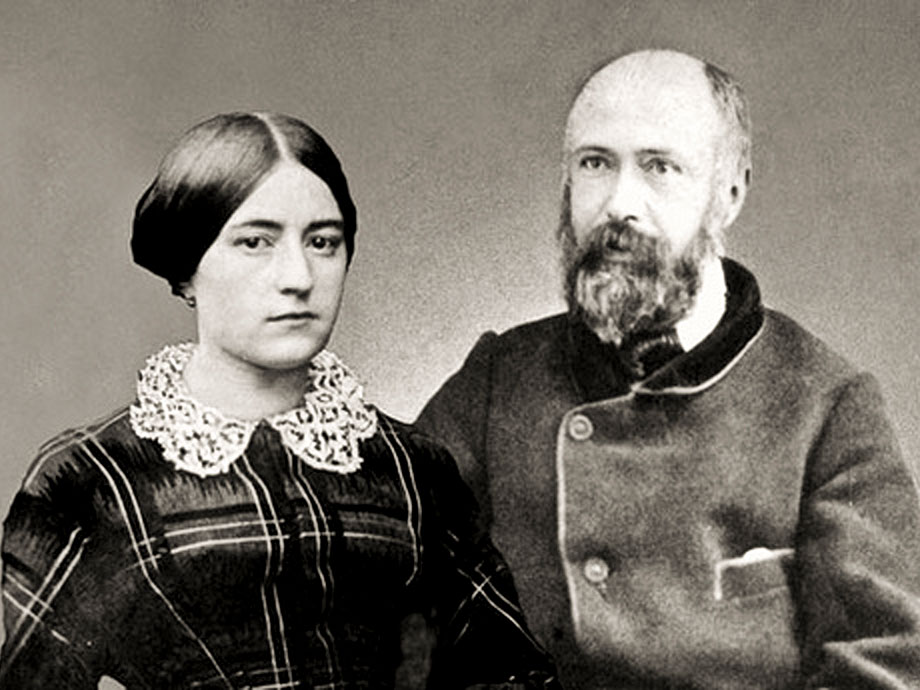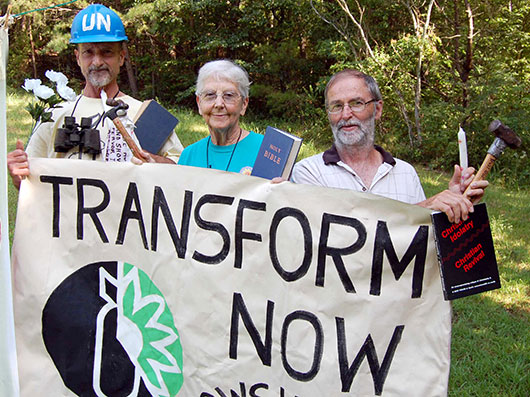Sometime in April 1980, a convoy of cars was traveling through the savanna north of Gulu, in Northern Uganda, heading towards Alelelele, the lepers’ village situated within the territory of Lacor Parish. By that time, I had assumed the position of acting parish priest, and I was happy to accompany that expedition of friends from Italy in my capacity as guide and translator. The group was headed by an enormous Italian lay man.
As soon as we arrived at the lepers’ village, two camp stoves were unloaded and put quickly into operation, while the lepers and the local population stood around with gaping mouths, staring at the size of the leader of the Wajungu (White people) who were now busy cooking rice on top of a generous splashing of olive oil, tomato sauce, onion, garlic and saffron powder, in two huge pots.
When the rice was cooked, an appetizing aroma spread around to the incredible delight of the populace and Big Victor tied an immense apron around his gigantic stomach, got hold of an oversized ladle and started distributing paper plates full of the most delicious Italian risotto to the lepers, the children and whoever wanted to eat. The occasion was then marked by speeches, songs and dances. In the end, the lepers withdrew to their huts, wrapped in their soft new blankets, still overwhelmed by wonder and disbelief.
That was the first time I met Vittorione (Big Victor), an Italian hotelier turned missionary. I was impressed by his enthusiasm and down–to-earth approach to the poverty and need of the African people. “Whoever is hungry, is hungry now. Whoever is thirsty, is thirsty now. Whoever suffers, suffers now. The poor cannot wait,” was his simple philosophy. With his 450 lbs bulk, his baby complexion and rumbling voice, he was an impressive figure: people in Italy could easily identify with his generous approach and flooded him with every type of goods and the poor of Uganda saw him as a Father Christmas figure, always ready to share the most unexpected and delicious surprises. He was, however, a man of deep spirituality and heroic self-forgetfulness.
Africa Mission Travel Agency
Vittorio Pastori was born at Varese, in Northern Italy, on April 15, 1926. He grew up in his adolescence to become extraordinarily obese, but this did not make him lose his natural creativity and zest for life. In the early 50s, Vittorio opened a restaurant in his city, a flourishing commercial activity which kept him busy for the next 15 years. The responsibility for what soon became the most renown place in the whole town revealed the managerial gifts of the owner and his capacity as an accomplished businessman.
A turning point in Vittorio’s life was when he met a priest, Msgr. Enrico Manfredini, parish priest of San Vittore, who entrusted him with increasing administrative tasks. When, in 1969, Msgr Manfredini became bishop of Piacenza, he invited Vittorio to follow him to the new place and take responsibility for the financial administration of the Bishop’s residence, the seminary and other diocesan institutions. The interest for Africa originated in the experience of Bishop Manfredini when he was still a priest under the authority of his archbishop, Cardinal John Baptist Montini – who became pope with the name of Paul VI – who put him in contact with some African priests.
In 1969, already a bishop, together with his cooperator Vittorio Pastori, he decided to take a trip to Africa. They visited Uganda, Kenya, Tanzania and other countries belonging to the Sub-Sahara area and were struck by the miserable conditions of the people and impressed by the work of the Catholic Church and its missionaries. Back home, Vittorio and his bishop decided to do something immediately.
The first idea was to give the possibility to as many people as possible to see what was happening down there: it is only by seeing with their own eyes that people can understand certain situations. So Vittorio founded the Africa Mission Travel Agency. The first years were very tough, pioneering years. He commenced by giving conferences, showing slides, then the missionary trips started. All in all, Africa Mission has taken to Africa more than 700 people.
From the first-sight experience, soon the commitment to help followed and gave origin to the trips to Uganda with many containers of goods (every kind of food, plows, tractors, and other mechanical, agricultural and sanitary implements). In 1982, Vittorio founded the NGO “Cooperation and Development” that established two independent centers in Kampala, the capital, and Moroto, the far away outpost in the wild Karamoja, in order to host the volunteers and to store the goods for distribution.
On September 15, 1984, Vittorio Pastori, crowning a long standing desire, was ordained priest by Msgr. Cyprian Kihangire, bishop of Gulu (Uganda), and continued to carry on his mission on behalf of the hungry and marginalized people, without separating the spiritual aspects from the material ones. He alternated long periods in Uganda, at Kampala and Moroto and other periods in Italy, during which he met with communities, parishes, groups, associations in order to solicit help.
A deluge of Christmas cakes
Paolo Scaravaggi, a construction engineer in his late sixties, heads “Cooperation and Development, nowadays, since 1994, the year of its founder’s death. From the desk on which Don Vittorione used to organize his missions on behalf of Uganda, giving trouble to ministers, cardinals, bishops, air force and army generals, big and small businessmen, Mr. Scaravaggi likes to reminisce when, in 1972, he himself was in the Alitalia flight loaded with goods for the great famine in Africa, that touched down at Athens before heading for Entebbe, the international airport of Kampala, the capital of Uganda.
The place had emerged from anonymity two years before when, during Amin’s dictatorship, it had become the theater of the famous raid by the Israeli commandos to free the Jewish hostages from the kidnapped plane. To welcome the delegation from Piacenza, at the landing, there came, in t-shirt and blue jeans, the young Comboni missionary Fr. John Scalabrini, Vicar General of the Bishop of Gulu.
From the cavernous interior of the plane, there rained a deluge of Italian Christmas cakes (“panettoni”), something which would continue to be like the trade mark of Big Victor’s generosity.
To those who object, Mr. Scaravaggi replies with a smile: “Why be surprised and wonder? We must approach this fact with a broadminded attitude: take the case of the missionaries priests and sisters who have spent years without coming home for Christmas; is there something better than to provide them with a Christmas cake? And if they enjoy the “panettone,” why not give them the possibility of sharing it with their people? Christmas is our feast. When we give out our Christmas cakes, we are celebrating our feast. I wish we had always tons of ‘panettoni’ to send to Uganda!”
At any rate, the activities of “Cooperation and Development” have increased over the years and have become differentiated. One of the most remarkable has to do with the dire need for water. By means of specialized and experienced technicians, in Uganda, the association has dug more than 700 boreholes for drinkable water and, at the same time, repaired and reactivated existing boreholes. The last initiative is the “Don Vittorio Youth Center” opened in Moroto, the little town which is the capital of Karamoja, the less developed area of Uganda. The center is dedicated to the memory of its founder and means to cater for the Karimojon youth, promoting literacy, sports activities, traditional music and folk dancing, indoor and outdoor games.
In love with his priesthood
After my first experience at Alelelele, I met many times with Big Victor, especially when, as rector of Nadiket Minor Seminary in Karamoja, I was accustomed to drive my pickup truck to his residence at Moroto and collect the variety of goods he always brought for us twice a year. But what has remained indelible in my memory is when I accompanied him once, again as translator, in his visit to the Seminary of the Apostles of Jesus, a missionary congregation of priests and brothers founded by the Comboni missionaries. Their seminary is adjacent to Nadiket and both are situated on the side of Mount Moroto, at about 5 km from the town of the same name.
The short convoy of land rovers arrived at the spot while the drums were beaten and the neighboring population was dancing, happy and curious as always in front of the spectacle of Big Victor. I noticed that his movements were more laborious than usual; he appeared tired. After the welcoming speeches, the Mass started. Fr. Vittorio revealed a simple and moving devotion: clad in an immense chasuble, he started the ceremony of the Mass in Latin, singing…
After the Gospel, he spoke movingly, saying that, every year, he remembered his mother Carmela on the feast of our Lady of Mount Carmel. He exhorted the seminarians to love their vocation and to entrust themselves with great confidence to the Blessed Mother. Then we all sat at table and everything ended with the distribution of the gifts of food he had brought for the community and for the people.
That was the last time I saw him. He remains in my mind as a selfless, extraordinary man, who joined exceptional organizational skill to a childlike love for his priesthood. Three years after, on September 2, 1994, after a long period of hospitalization, he died in Piacenza, Italy. Early that same year he had completed his 147th trip to Uganda.







